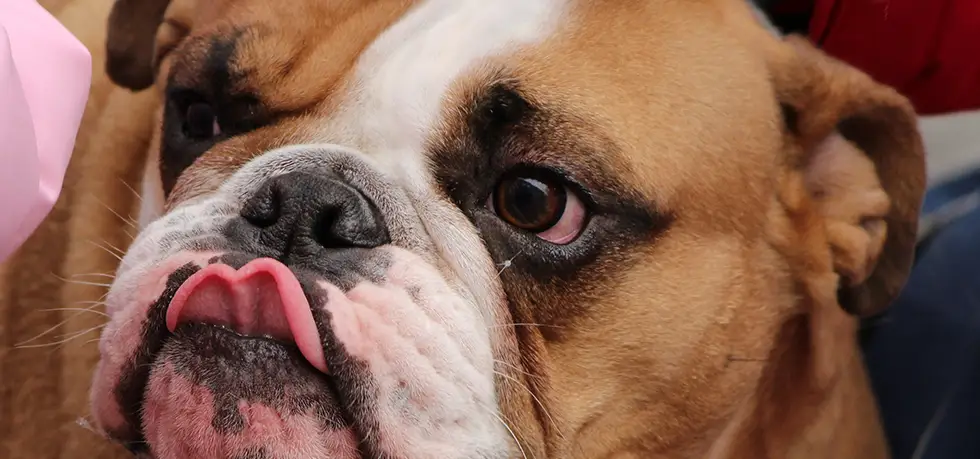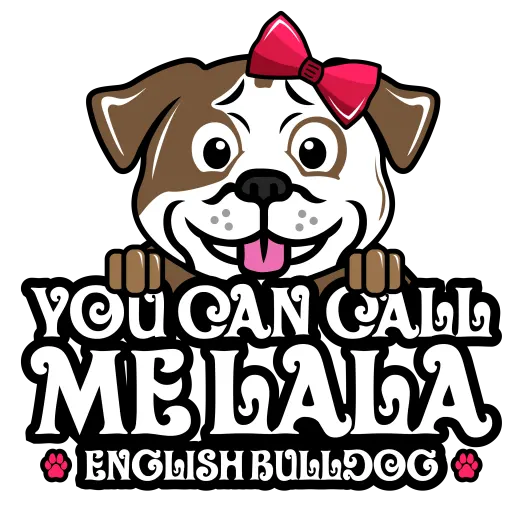Diet Demystified: Navigating the English Bulldog Nutrition Needs

When it comes to English Bulldogs, their distinctive appearance and charming personalities steal the show. These adorable, wrinkled dogs are known for their unique charm and have gained a dedicated fan base worldwide. However, behind those lovable wrinkles and endearing expressions lies a critical aspect of Bulldog care: their diet. In this comprehensive guide, we'll demystify English Bulldog nutrition and explore the dietary needs of English Bulldogs to ensure they lead healthy, happy lives.
- Understanding the Bulldog Nutrition Needs
- Choosing the Right Food for your English Bulldog Nutrition
- Feeding Routine and English Bulldog Nutrition: Ensuring a Healthy Diet for Your Bulldog
- Monitor Their Weight and English Bulldog Nutrition: Maintaining a Healthy Diet for Bulldogs
- The Importance of Consultation
Understanding the Bulldog Nutrition Needs
To provide the best nutrition for your English Bulldog, it's crucial to understand their unique dietary requirements. Bulldogs are medium-sized dogs with distinct physical features, such as their stocky build and short, sturdy legs. Their nutritional needs are influenced by these characteristics and their potential health concerns.
1. Protein: Building Blocks for Bulldogs
Protein is a fundamental component of a Bulldog's diet. It's essential for muscle development and overall growth. Look for high-quality, animal-based protein sources in their food, such as chicken, beef, or fish. These proteins are easily digestible and provide the necessary amino acids to support their health.
2. Quality Carbohydrates: Fuel for Energy
Carbohydrates are a primary source of energy for Bulldogs. Opt for complex carbohydrates like sweet potatoes, brown rice, and peas, which provide sustained energy without causing rapid spikes in blood sugar levels.
3. Healthy Fats: Skin and Coat Care
Healthy fats, including omega-3 and omega-6 fatty acids, are vital for maintaining your Bulldog's skin and coat health. These fats also support various bodily functions. You can find these in ingredients like fish oil and flaxseed.
4. Balanced Diet: Watch the Calories
Bulldogs have a tendency to gain weight, so it's essential to monitor their calorie intake. Obesity can lead to various health issues, including joint problems and respiratory difficulties. Consult with your veterinarian to determine the appropriate portion size and feeding schedule for your Bulldog's age, weight, and activity level.
5. Joint Support: Nutrients for Mobility
Bulldogs are prone to joint problems due to their build. Look for dog food formulations that contain glucosamine and chondroitin sulfate, which support joint health and mobility.
6. Age Matters: Tailored Diets
As your Bulldog ages, their nutritional needs may change. Senior Bulldogs may benefit from diets designed to support their aging bodies, including joint health and digestion.
7. Food Allergies: Be Aware
Some Bulldogs may have food allergies or sensitivities. If you notice skin issues, gastrointestinal problems, or excessive itching, consult your vet to rule out food allergies and consider hypoallergenic diets.
8. Fresh Water: The Unsung Hero
While we focus on the food itself, don't forget the importance of fresh, clean water. Adequate hydration is essential for digestion, circulation, and overall well-being.
🐶 This may interest you: Decoding the Wrinkles: Understanding the Unique Health Needs of Your English Bulldog
Choosing the Right Food for your English Bulldog Nutrition
Now that you understand your Bulldog's dietary needs, it's time to choose the right food. Look for reputable dog food brands that prioritize high-quality ingredients and avoid fillers like corn and soy. Consider consulting with your veterinarian to select the best food for your Bulldog's specific needs.
Feeding Routine and English Bulldog Nutrition: Ensuring a Healthy Diet for Your Bulldog
Establishing a regular feeding routine is crucial for your Bulldog's digestive health and overall well-being. Most Bulldog owners find success with two meals a day, one in the morning and one in the evening. Avoid free feeding, as it can contribute to overeating and weight gain.
Monitor Their Weight and English Bulldog Nutrition: Maintaining a Healthy Diet for Bulldogs
Regularly monitor your Bulldog's weight and body condition. Use a body condition scoring system recommended by your veterinarian to ensure your Bulldog maintains a healthy weight. Adjust their portion sizes as needed to prevent obesity.
Treats and Snacks
Treats and snacks are a part of every dog's life, but it's important not to overdo it. opt for healthy, low-calorie treats and limit their consumption to avoid excessive calorie intake.
Transitioning to a New Food: Managing Your English Bulldog Nutrition Transition
When transitioning to a new food, do it gradually over the course of about a week to prevent digestive upset. Mix a small portion of the new food with their current food and gradually increase the ratio until they're eating the new food exclusively.
Common Health Concerns and English Bulldog Nutrition: A Guide to a Healthy Diet
Bulldogs are known for their adorable, wrinkled faces, but these folds can also trap moisture and lead to skin fold dermatitis. A well-balanced diet, proper cleaning of wrinkles, and regular vet check-ups can help prevent skin issues.
Additionally, English Bulldogs are brachycephalic, which means they have flat faces. This can make eating a bit challenging, so it's best to provide smaller kibble sizes or soften their food with warm water.
👇👇👇 The Best Nutrition for your English Bulldog 👇👇👇
The Importance of Consultation
While this guide offers valuable insights into Bulldog nutrition, every Bulldog is unique. Consult with your veterinarian to create a customized feeding plan tailored to your Bulldog's specific needs, age, and health status.
In conclusion, providing your English Bulldog with the right nutrition is a crucial aspect of responsible pet ownership. By understanding their unique dietary requirements and consulting with your veterinarian, you can ensure that your Bulldog leads a healthy, happy, and active life. A well-balanced diet will not only help maintain their charming appearance but also support their overall well-being and longevity.
Remember that the key to a healthy Bulldog lies in a nutritious diet, regular exercise, and lots of love and attention. Your furry friend will thank you with endless kisses, wagging tails, and years of companionship.
